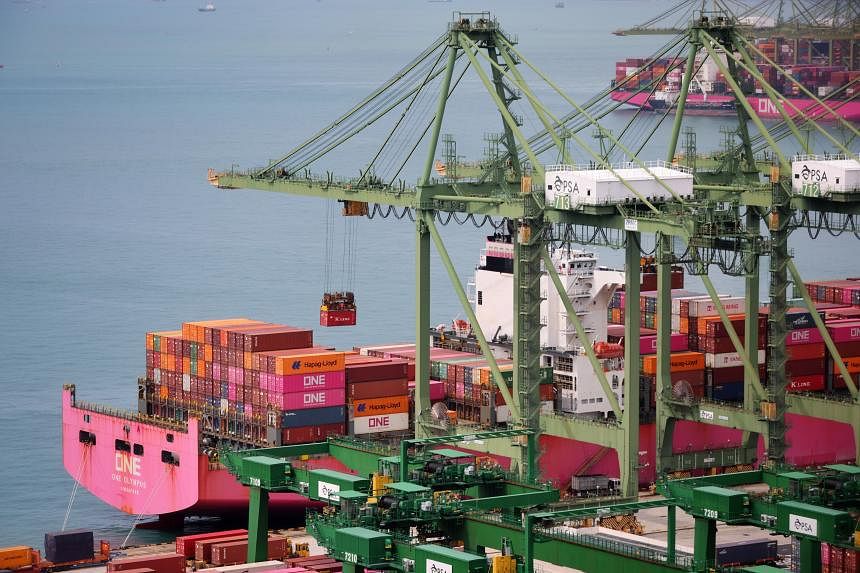SINGAPORE - Confidence among multinational companies in China has deteriorated in the past half-year, but leaving the country is not an option for most chief executives in Europe compared with their global peers.
Instead, most CEOs in Europe prefer to continue strengthening their supply chains elsewhere, including moving part of or entire supply chains to South-east Asia, according to a report by think-tank The Conference Board.
In its previous report for the second half of 2022, it said 28 per cent of CEOs it surveyed had shifted or were planning to shift parts of or entire supply chains to South-east Asia.
Its latest report looking at 2024 said more than 60 per cent of CEOs in Europe have already altered their supply chains or plan to do so in the next three to five years.
Exiting China remains an unpopular strategy, with less than 2 per cent citing an exit from the country as they adjust their supply chains.
“This is because China remains an important contributor to European competitiveness.
“It is an important supplier of raw materials and intermediate products to Europe and, due to its size, China is a significant market that generates stable revenues for European businesses,” said Mr Konstantinos Panitsas, an economist at The Conference Board.
Also, China’s strategic dominance in key products such as rare earth materials and renewable energy means a decoupling could be a “very risky” endeavour for many European businesses, he added.
Instead, CEOs in Europe are shifting towards other markets, bringing production closer to home and finding other sources of supplies to reduce their dependence on China and ensure strategic autonomy and security.
The findings are based on a survey taken in the fourth quarter of 2023, and are based on responses from 12,470 C-suite executives, including 630 CEOs from all over the world.
Like their global peers, recession fear is a top external concern for CEOs in Europe, but only 26 per cent of them believe their organisations are either well-prepared or very well-prepared to handle a recession crisis.
Global political instability is the second most important external stressor for 2024.
Wars in Ukraine and the Middle East, conflicts in the Red Sea, rising tensions in the Indo-Pacific region and political volatility domestically add to the growing uncertainty, making longer-term investment decisions more difficult, the CEOs said.
Inflation and higher borrowing costs are also major concerns, with higher costs a key reason economic activity in Europe is expected to remain lacklustre in 2024, Mr Panitsas said.
CEOs in Europe are also worried about the recurrence of a global financial crisis.
Intensified global trade wars and import tariffs are also high on their list of geopolitical concerns. For example, Europe’s October 2023 announcement of the launch of an anti-subsidy probe into Chinese electric vehicles has sparked fears of a fresh round of trade tensions between Europe and China, which could in turn accelerate protectionist moves by both sides, they said.
More than a third of European CEOs intend to ramp up their efforts to speed up the pace of digital transformation to boost productivity and growth.
CEOs are concentrating on enhancing employees’ digital proficiency, modernising IT infrastructure and fostering a data-driven culture.
Prioritising customers’ needs and improving customers’ experience are high on their to-do list to drive growth.
Unlike their US and Japanese counterparts, talent attraction and retention has become a less pressing issue for CEOs in Europe in 2024. Mr Panitsas said this could be because companies across Europe hoarded labour in 2023 as a way to overcome staffing shortages in the future, particularly in occupations crucial for the implementation of the green and digital transformation.
When asked about their plans for growing profits in 2024, an overwhelming majority of CEOs in Europe see entering new markets as the top growth lever.
Developing new lines of business, expanding into new geographic markets, and engaging in mergers and acquisitions are high on the list of actions for achieving long-term growth.
Investing in technology, cyber security and human capital are also critical components of longer-term business growth strategy.
Interestingly, cutting costs is a somewhat less favourable strategy among CEOs in Europe.
“Relatively strong corporate balance sheets, accelerated efforts to implement the green and digital transformation, and hopes for a pickup in economic activity in 2024 could possibly explain their intentions to prioritise investments rather than cost savings,” Mr Panitsas said.


